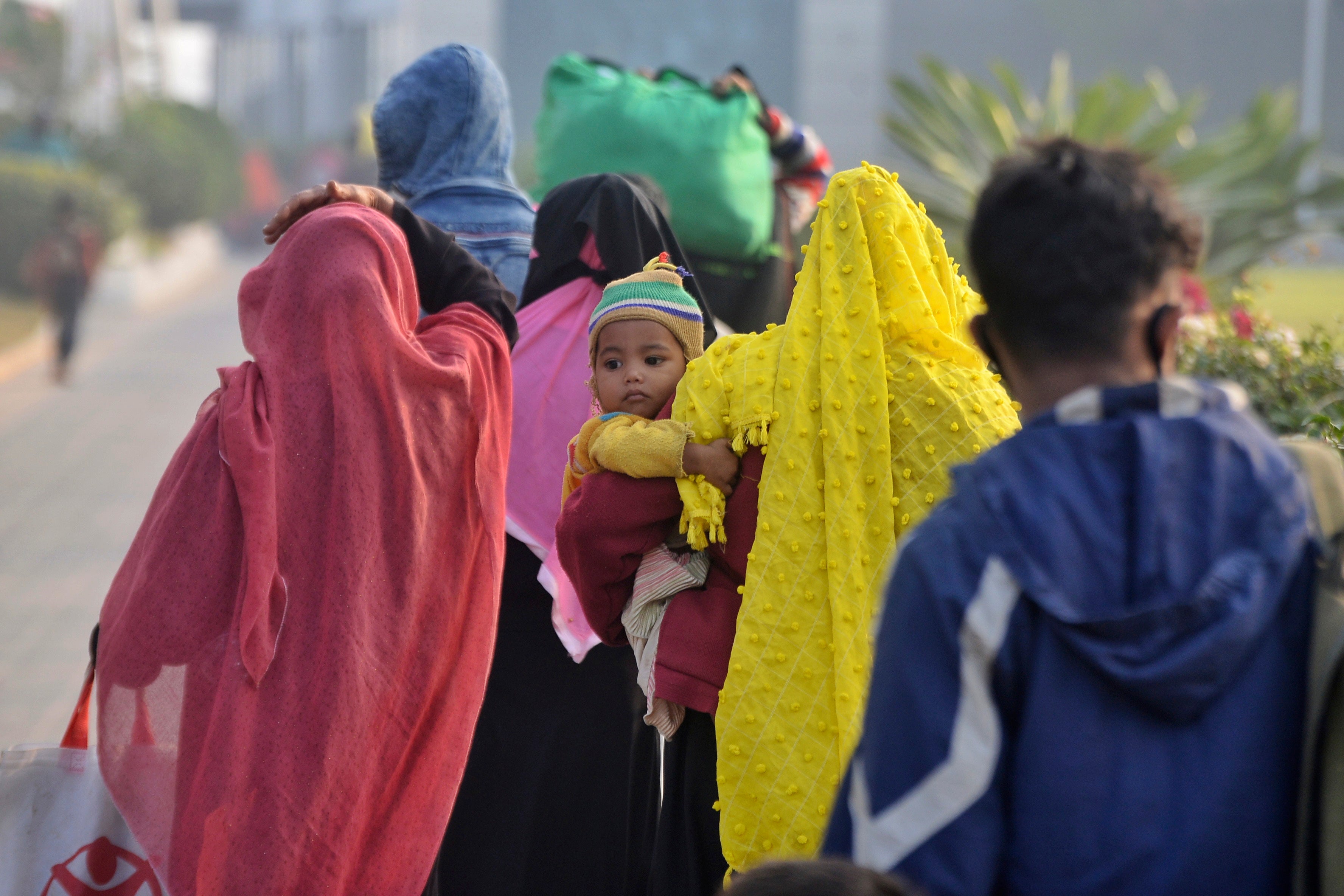Bangladesh sends more Rohingya to island despite concerns
Bangladesh’s government has sent a fourth group of Rohingya Muslim refugees to an island in the Bay of Bengal, ignoring calls from human rights groups for a halt to the move

Your support helps us to tell the story
From reproductive rights to climate change to Big Tech, The Independent is on the ground when the story is developing. Whether it's investigating the financials of Elon Musk's pro-Trump PAC or producing our latest documentary, 'The A Word', which shines a light on the American women fighting for reproductive rights, we know how important it is to parse out the facts from the messaging.
At such a critical moment in US history, we need reporters on the ground. Your donation allows us to keep sending journalists to speak to both sides of the story.
The Independent is trusted by Americans across the entire political spectrum. And unlike many other quality news outlets, we choose not to lock Americans out of our reporting and analysis with paywalls. We believe quality journalism should be available to everyone, paid for by those who can afford it.
Your support makes all the difference.Bangladesh's government sent a fourth group of Rohingya Muslim refugees to an island in the Bay of Bengal on Saturday, ignoring calls from human rights groups for a halt to the move.
The 1,466 Rohingya who had been living in the sprawling refugee camps of Cox’s Bazar were sent Saturday to Bhasan Char, an island specifically developed to accommodate 100,000 of the 1 million Rohingya who have fled from neighboring Myanmar. That follows 1,776 refugees who made the trip on Friday.
The relocations began in December and have been criticized by human rights groups, who say many of the refugees are being forced to move against their will.
Prime Minister Sheikh Hasina and her government have denied that and said the relocations will continue.
Bangladesh has said that ultimately it is up to Myanmar to take the refugees back and has called on the international community to put pressure on Myanmar's government to ensure their safe return.
More than 1 million Rohingya have fled waves of violent persecution in their native Myanmar and are currently living in overcrowded, squalid refugee camps in Cox’s Bazar district.
“My people and relatives came here earlier. They said it is better here. So, we came,” Aman Ullah, a Rohingya refugee, said Saturday after his arrival on Bhasan Char.
Another said he came voluntarily.
“We were asked to come. And we came here at our own will,” said Mohammed Nuruddin.
The island, located 21 miles (34 kilometers) from the mainland, surfaced only 20 years ago and was not previously inhabited. It was regularly submerged by monsoon rains but now has flood protection embankments, houses, hospitals and mosques built at a cost of more than $112 million by the Bangladesh navy.